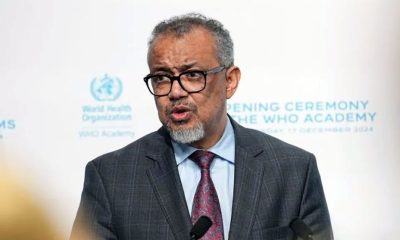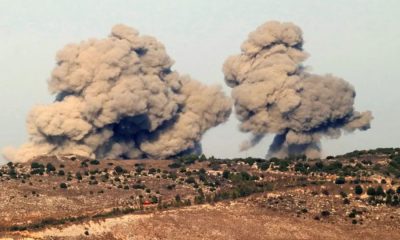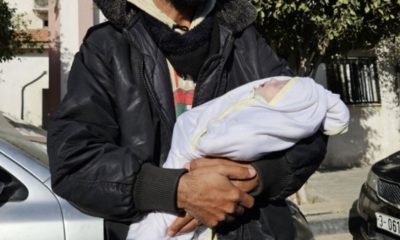International
Heavy gun battle in Gaza as Israel steps up ground war – Hamas
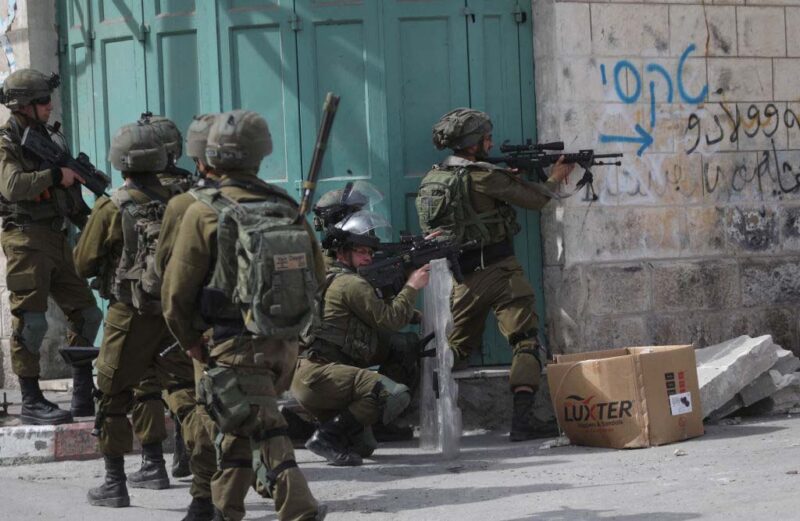
Heavy gun battle in Gaza as Israel steps up ground war – Hamas
Hamas said it was engaged in “heavy fighting” with Israeli troops on Sunday inside northern Gaza, where besieged residents were again told to flee.
After weeks of ferocious air strikes, Israeli Prime Minister Benjamin Netanyahu has declared a new “stage” in what he warned will be a “long and difficult” war.
Israel’s military released a series of images late Sunday purporting to show tanks, armoured personnel carriers, artillery and equipment-laden infantrymen operating inside Palestinian territory.
Hamas said its Ezzedine al-Qassam Brigades were already “engaged in heavy fighting… with the invading occupation forces”.
The Israel Defence Forces claimed to have struck more than “450 terror targets, including operational command centres, observation posts, and anti-tank missile launch posts”.
The military also said 31-year-old sergeant Yinon Fleishman was killed in Gaza when his tank overturned.
With a fierce urban war now feared, Israeli army spokesman Daniel Hagari told Palestinian civilians to go south “to a safer area”.
“We are gradually expanding the ground activity and the scope of our forces in the Gaza Strip,” he said.
It is now more than three weeks since Hamas gunmen launched a wave of bloody cross-border raids against homes, communities, farms and security posts inside Israel.
READ ALSO:
-
Airlines consider palm oil jet fuel after first commercial flight
-
Bello, Onyema, Maida, Yusuf, Sheidu-Shabi For City Business News Summit
-
Why NLC may boycott FG meeting today, set to ground Imo
An estimated 1,400 people, mostly civilians, were killed and 239 people were taken hostage, according to the latest Israeli tallies.
Grieving and enraged, Israel has vowed to free the hostages, track down those responsible and “eradicate” Hamas, a Palestinian Islamist movement that has governed Gaza since 2007.
But there is growing international concern about the toll of Israel’s campaign on Gaza’s two-plus million residents.
The territory is under siege, with people unable to leave and only a trickle of humanitarian aid allowed in.
Meanwhile, Israel has carried out one of the most intense bombing campaigns in recent memory.
Gaza’s Hamas-run health ministry says more than 8,000 people, mainly civilians, have been killed — half of them children.
– Food, water, medicine –
Inside Gaza’s maze of streets, rubble and hulled-out buildings, there is a growing sense of panic, fear and desperation.
Ibrahim Shandoughli, a 53-year-old from Jabaliya in northern Gaza, asked why he would head south when that area is also being bombed.
“Where do you want us to evacuate to? All the areas are dangerous,” he said.
Etidal al-Masri was among those who did move south.
But even in the border town of Rafah, she still struggles to find even the basics amid shortages of food, water and medicine.
Gazans “must now queue for bread, toilets and even for sleep”, she said.
On Sunday, the desperation appeared to boil over.
The United Nations reported that “thousands of people” had ransacked its warehouses looking for tinned food, flour, oil and hygiene supplies.
The UN also reported that 33 trucks carrying water, food, and medical supplies had entered Gaza from Egypt on October 29.
It is one of the largest deliveries to date, but still far short of the 100 trucks a day that aid groups say is needed.
International Criminal Court lead prosecutor Karim Khan warned Israel on Sunday that preventing access to humanitarian aid could be a “crime”.
– ‘Axis of resistance’ –
In a phone call with Netanyahu on Sunday, US President Joe Biden also underscored the need to “immediately and significantly” increase the flow of aid.
And while the White House has welcomed the gradual return of cell phone and internet services that had been cut for days, it had a sharp warning for Israel’s leaders.
READ ALSO:
-
14-yr-old boy commits suicide in Calabar
-
Gunmen abduct Catholic priest in Taraba
-
Medical doctor arrested with 3 children abducted from Benue
-
We’re reforming Nigeria’s economic, business environment to promote efficiency – Tinubu
The “burden” lies with Israel to distinguish between militants and innocent civilians in Gaza, US National Security Advisor Jake Sullivan told CNN.
According to the UN, all 10 hospitals in northern Gaza have received evacuation orders — despite sheltering thousands of patients and about 117,000 of the displaced.
The Palestinian Red Crescent Society has said evacuation is impossible and reported repeated strikes around Al-Quds Hospital in central Gaza.
The head of the World Health Organisation said calls to evacuate Al-Quds Hospital were “deeply concerning”.
“We reiterate – it’s impossible to evacuate hospitals full of patients without endangering their lives,” Tedros Adhanom Ghebreyesus wrote on X.
Mohamed al-Talmas, who has taken shelter in Gaza’s biggest hospital Al-Shifa, said “the ground shook” there with intense Israeli raids.
Israel describes Al-Shifa hospital as a de facto Hamas “command centre” and headquarters.
Washington has also expressed deep concern about the war spilling over, as Israel’s enemies — and in particular an Iran-allied “axis of resistance” — step up actions across the Middle East.
Iran’s President Ebrahim Raisi has warned Israel’s “crimes have crossed the red lines, which may force everyone to take action”.
Since Hamas’s attack on October 7, Iran-backed groups have launched attacks from Lebanon, Yemen, Iraq and Syria.
READ ALSO:
-
Why I dislike my late son’s wife – Mohbad’s father
-
Armed men take over River assembly as explosion rocks complex
-
How I directed Abba Kyari, Mallami to resolve P&ID scandal – Buhari
Skirmishes have intensified on the Israeli-Lebanese border with Iran-backed Hamas ally Hezbollah.
On Sunday militants in south Lebanon fired rockets towards Israel, which has responded with strikes.
The Israel Defense Forces also said they had “struck military infrastructure in Syrian territory” in response to launches “toward Israeli territory.”
– ‘Psychological games’ –
Inside Israel, where shocked residents still face daily rocket attacks, much of the focus is on the hostages abducted by Hamas.
Hamas has released four prisoners and offered to release more as part of a swap for Palestinians detained in Israel.
It has also claimed “almost 50” hostages were killed by Israeli strikes — a claim that was impossible to verify but has caused anguish to those praying for their loved ones to return.
“We demanded that no action be taken that endangers the fate of our family members,” said Meirav Leshem Gonen, the mother of hostage Romi Gonen.
Israel’s Defence Minister Yoav Gallant accused Hamas of playing “psychological games”.
“Hamas is cynically using those who are dear to us – they understand the pain and the pressure,” he said.
Heavy gun battle in Gaza as Israel steps up ground war – Hamas
(AFP)
International
Israel ejects Gaza hospital, detains medical personnel
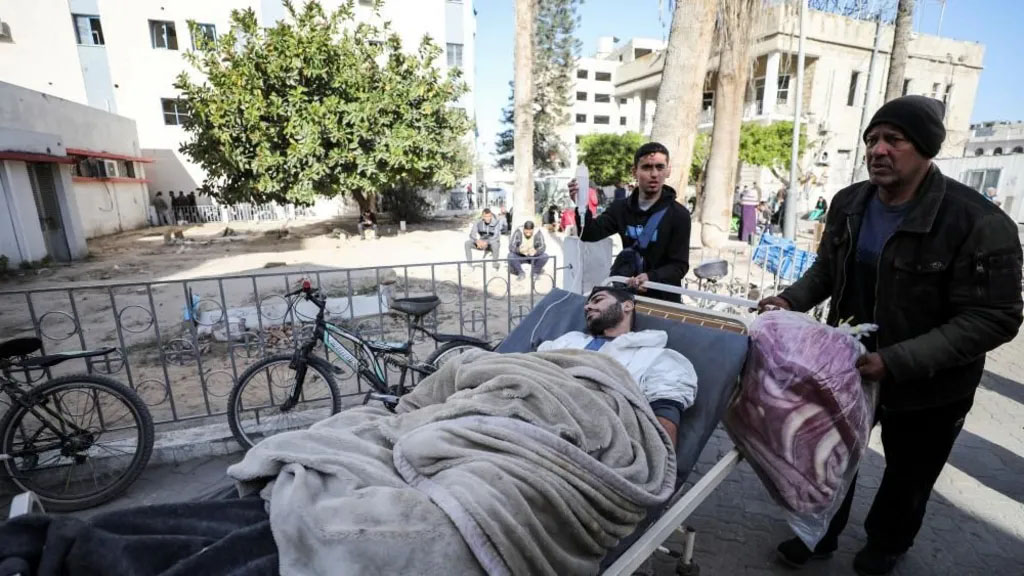
Israel ejects Gaza hospital, detains medical personnel
The last major functioning hospital in northern Gaza was forcibly evacuated by the Israeli military on Friday after dozens of people were reportedly killed in Israeli strikes targeting the area.
Medical staff, including the director of the Kamal Adwan Hospital, have also been detained, Gaza health officials said on Saturday.
The hospital director, Dr Hussam Abu Safiya, was among the first to report that about 50 people had been killed in Israeli air strikes targeting the vicinity of the hospital on Friday.
The IDF had said it was carrying out an operation in the area, alleging the hospital was a “Hamas terrorist stronghold”.
On Friday, patients at the hospital were forcibly moved to the nearby Indonesian Hospital which doctors warn is damaged and unsuitable due to a lack of power generators and water.
Eid Sabbah, head of the nursing department at Kamal Adwan, told the BBC the military had ordered the evacuation around 07:00 on Friday, giving the hospital about 15 minutes to move patients and staff into the courtyard.
Israeli troops then entered the hospital and removed the remaining patients, he said.
READ ALSO:
- We’re not aware of VeryDarkMan’s missing N180m — Police
- Trump asks Supreme Court to suspend law for TikTok ban
- Romeo and Juliet actress Olivia Hussey dies at 73
The IDF said it had “facilitated the secure evacuation of civilians, patients and medical personnel” before beginning the operation.
Seriously ill patients were moved to the nearby Indonesian Hospital, itself evacuated earlier in the week, which medics have described as non-functional.
“You can’t call it a hospital, it’s more of a shelter. It’s not equipped for patients,” Gaza’s deputy minister of health, Dr Abu-Al Rish, told the BBC on Friday.
Dr Sabbah, from Kamal Adwan Hospital, said: “It’s dangerous because there are patients in the ICU department in a coma and in need of ventilation machines and moving them will put them in danger.”
He had said critically ill patients needed to be moved in specialised vehicles.
The World Health Organization said the raid “has put this last major health facility in north Gaza out of service”.
“Initial reports indicate that some key departments were severely burnt and destroyed during the raid,” it posted on X on Friday.
Nadav Shoshani, international spokesman for the Israel Defense Forces (IDF), said in a post on Friday evening on X that a “small fire broke out in an empty building inside the hospital that is under control”.
This was when IDF troops were not inside the hospital, he said, adding that “after preliminary examination, no connection was found between IDF activity to the fire”.
The director of Kamal Adwan hospital had said on Friday that approximately 50 people had been killed, including five medical staff, in a series of Israeli air strikes targeting the vicinity of the hospital.
READ ALSO:
- Niger’s president faces fire at home over attack on Nigeria
- Israel attacks: UN warns humanitarian disaster in Yemen may get worse
- Wike: My fallout with Secondus was his opposition to Fubara
The statement from Dr Hussam Abu Safiya said a building opposite the hospital was targeted by Israeli warplanes, leading to the death of a paediatrician and a lab technician, as well as their families.
He said a third staff member who worked as a maintenance technician was targeted and killed as he rushed to the scene of the first strike.
Two of the hospital’s paramedics were 500m (1,640ft) away from the hospital when they were targeted and killed by another strike, the statement continued, with their bodies remaining in the street with no-one able to reach them.
The Israeli military said on Friday morning that it was “unaware of strikes in the area of Kamal Adwan hospital” and was looking into the reports that staff had been killed.
Kamal Adwan hospital in Beit Lahia has been under a tightening Israeli blockade imposed on parts of northern Gaza since October, when the military said it had launched an offensive to stop Hamas from regrouping there.
The UN has said the area is under a “near-total siege” as the Israeli military heavily restricts access of aid deliveries to an area where an estimated 10,000 to 15,000 people remain.
In recent days, the hospital’s administrators have issued desperate pleas appealing to be protected, as they say the facility has become a regular target for Israeli shelling and explosives.
Oxfam said that attempts by aid agencies to deliver supplies to the area since October had been unsuccessful because of “deliberate delays and systematic obstructions” by the Israeli military.
Additional reporting by Shaimaa Khalil
Israel ejects Gaza hospital, detains medical personnel
BBC
International
Trump asks Supreme Court to suspend law for TikTok ban
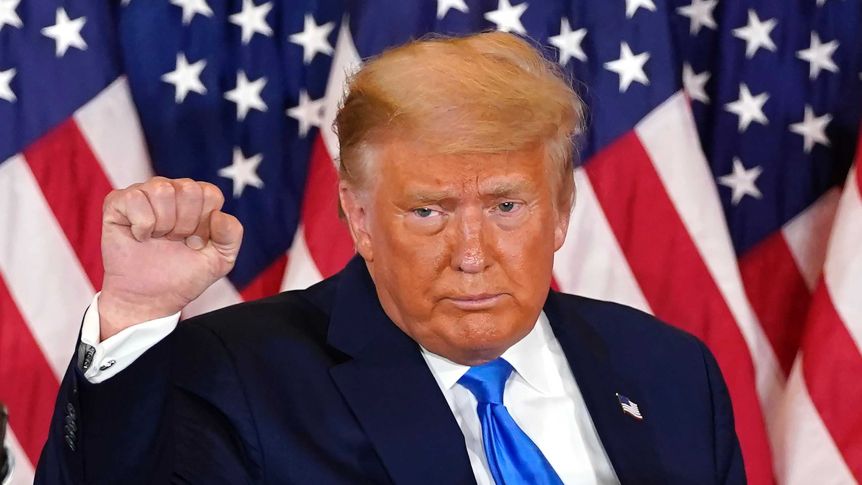
Trump asks Supreme Court to suspend law for TikTok ban
US President-elect Donald Trump filed a brief Friday urging the Supreme Court to pause a law that would ban TikTok the day before his January 20 inauguration if it is not sold by its Chinese owner ByteDance.
“In light of the novelty and difficulty of this case, the court should consider staying the statutory deadline to grant more breathing space to address these issues,” Trump’s legal team wrote, to give him “the opportunity to pursue a political resolution.”
Trump was fiercely opposed to TikTok during his 2017-21 first term, and tried in vain to ban the video app on national security grounds.
The Republican voiced concerns — echoed by political rivals — that the Chinese government might tap into US TikTok users’ data or manipulate what they see on the platform.
US officials had also voiced alarm over the popularity of the video-sharing app with young people, alleging that its parent company is subservient to Beijing and that the app is used to spread propaganda, claims denied by the company and the Chinese government.
Trump called for a US company to buy TikTok, with the government sharing in the sale price, and his successor Joe Biden went one stage further — signing a law to ban the app for the same reasons.
– Reversing course –
Trump has now, however, reversed course.
At a press conference last week, Trump said he has “a warm spot” for TikTok and that his administration would take a look at the app and the potential ban.
READ ALSO:
- Romeo and Juliet actress Olivia Hussey dies at 73
- Niger’s president faces fire at home over attack on Nigeria
- Israel attacks: UN warns humanitarian disaster in Yemen may get worse
Earlier this month, the president-elect met with TikTok CEO Shou Zi Chew at his Mar-a-Lago residence in Florida.
Recently, Trump told Bloomberg he had changed his mind about the app: “Now (that) I’m thinking about it, I’m for TikTok, because you need competition.”
“If you don’t have TikTok, you have Facebook and Instagram — and that’s, you know, that’s Zuckerberg.”
International
Romeo and Juliet actress Olivia Hussey dies at 73
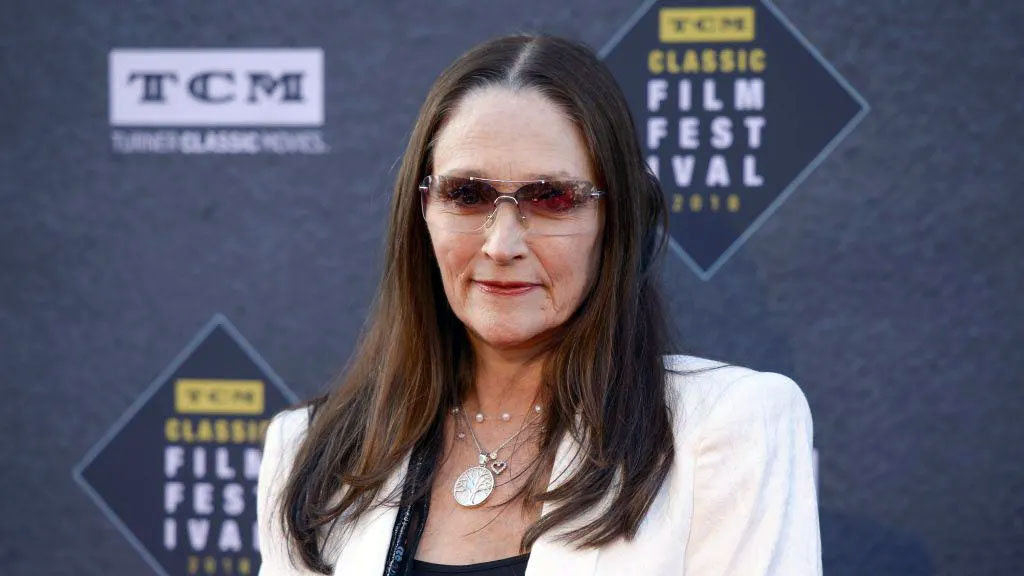
Romeo and Juliet actress Olivia Hussey dies at 73
Actress Olivia Hussey, who shot to international prominence as a teenager for her role in the acclaimed 1968 film version of Romeo and Juliet, has died aged 73.
The Argentinian-born actress, who grew up in London, died on Friday surrounded by her loved ones, a statement posted on her Instagram said.
Hussey won the best new actress Golden Globe for her part as Juliet, but decades later she sued Paramount Pictures for sexual abuse as she was aged just 15 when she filmed the movie’s nude scene.
Her other most notable screen role was as Mary, mother of Jesus, in 1977 TV miniseries Jesus of Nazareth.
“As we grieve this immense loss, we also celebrate Olivia’s enduring impact on our lives and the industry,” the statement said.
Hussey was born in Buenos Aires, Argentina, in 1951, before moving to London aged seven and studying at the Italia Conti Academy drama school.

1968’s Romeo and Juliet was nominated for best picture and director Oscars
She was 15 when Romeo and Juliet director Franco Zeffirelli discovered her onstage, playing opposite Vanessa Redgrave in the play The Prime of Miss Joan Brodie
READ ALSO:
- Niger’s president faces fire at home over attack on Nigeria
- Israel attacks: UN warns humanitarian disaster in Yemen may get worse
- Wike: My fallout with Secondus was his opposition to Fubara
Zeffirelli was looking for someone who was young enough to be a convincing Juliet in what he intended to be the definitive cinematic version of the Shakespeare play.
He cast Hussey alongisde British 16-year-old Leonard Whiting as Romeo in the film.
The film was nominated for an Oscar for best picture and director. Hussey missed out on an Oscar nomination herself in a strong year in which Barbra Streisand won the main award for Funny Girl.
But at that year’s Golden Globes Hussey won the award for best new star.
Decades later, she and Whiting sued Paramount Pictures alleging Zeffirelli – who died in 2019 – had encouraged them to film nude scenes despite previous assurances they would not have to.
The pair sought damages of more than $500m (£417m), based on suffering they said they had experienced and the revenue brought in by the film since its release.
But last year a judge dismissed the case, finding the scene was not “sufficiently sexually suggestive”.
In 1977, Hussey had reunited with Zeffirelli for Jesus of Nazareth to play the Virgin Mary, before appearing in Death on the Nile a year later based on Agatha Christie’s novel.
Her roles in early slasher film Black Christmas (1974) and TV film Psycho IV: The Beginning earned her recognition as a scream queen. In the latter, she p[layed Norman Bates’s mother in a prequel storyline.
In later years she also took on work as a voice actress, appearing frequently in video games.
But she did have one final reunion with her former Romeo – as she and Whiting appeared together in the 2015 British film Social Suicide, which was loosely based on Romeo and Juliet, albeit set in the social media era.
Romeo and Juliet actress Olivia Hussey dies at 73
BBC
-

 Business2 days ago
Business2 days agoBe creative, monarch, others challenge Muslim professionals on economic revival
-

 Auto1 day ago
Auto1 day agoLSM MD extols founder’s qualities after latter posthumous industry award
-

 Entertainment2 days ago
Entertainment2 days agoMultiChoice announces free access to all DSTV channels for 3 days
-

 metro2 days ago
metro2 days agoJigawa State governor loses son 24 hours after mother’s death
-

 News1 day ago
News1 day agoNigeria Customs Service begins 2025 recruitment [How to apply]
-

 metro1 day ago
metro1 day agoHeavy security in Ilesa as ex-Osun deputy gov emerges new Owa-Obokun
-

 metro1 day ago
metro1 day agoLagos Imam to Tinubu: You haven’t disappointed us
-

 metro1 day ago
metro1 day agoDangote, Tinubu, Lookman named among 100 most influential Africans in 2024 (Full list)



